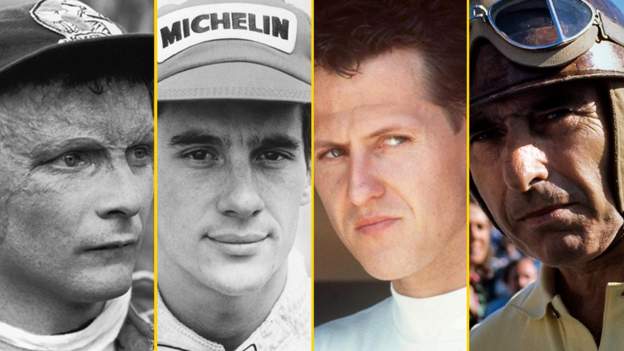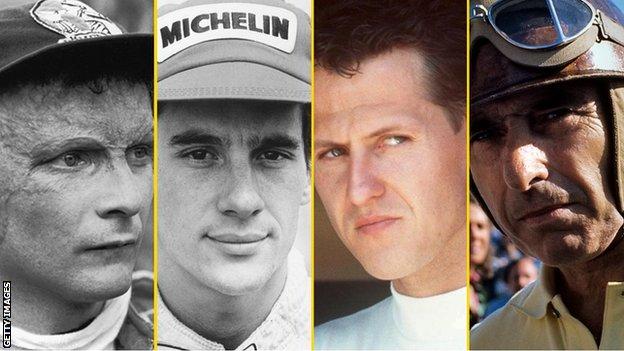
These films are sure to get you revved up for Sunday’s battle of the ages between Lewis Hamilton and Max Verstappen.
The Abu Dhabi Grand Prix is set to be an absolute blockbuster. For only the second time in Formula 1 history, the two top drivers – Hamilton and Verstappen – go into the final race of the season with level points.
If Hamilton is victorious, he will surpass Michael Schumacher’s joint-record of seven world championships.
Whatever happens, we wouldn’t be surprised if future films were made about this race.
In the meantime, here are five Formula 1 documentaries to whet the appetite.
1. Schumacher
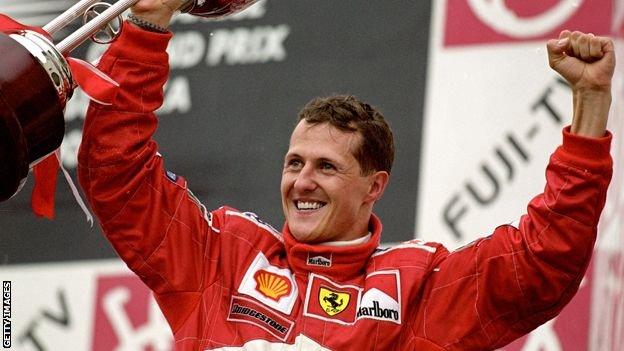
On the statistical front, there is not much to separate Schumacher from Lewis Hamilton. Both are modern giants.
This film is a loving paean to the German driver, who is out of public view following a 2013 skiing accident which left him with life-changing head injuries. It features interviews from the sport’s great and good, including Damon Hill, Mark Webber, Mika Hakkinen, Sebastian Vettel, Bernie Ecclestone and more.
The picture built is one of a very determined and obsessive sportsman, as well as one who wasn’t always able to see when he might have been in the wrong.
We find out how he suffered sleepless nights following the death of Ayrton Senna in 1994, how he struggled with Ferrari from 1996-99 and how winning the 2000 World Championship set him free to go on a run of dominance – winning consecutive titles.
We also hear lots from his wife and family and learn about Schumacher the family man – a terrible singer who loved throwing pool parties.
There are interesting scenes early on in the film about his childhood in karting, which show his need to just be in the mix. He used to enter competitions representing Luxembourg, rather than Germany because he couldn’t afford entrance fees and a technicality meant racing for Luxembourg was free.
2. Formula 1: Drive to Survive
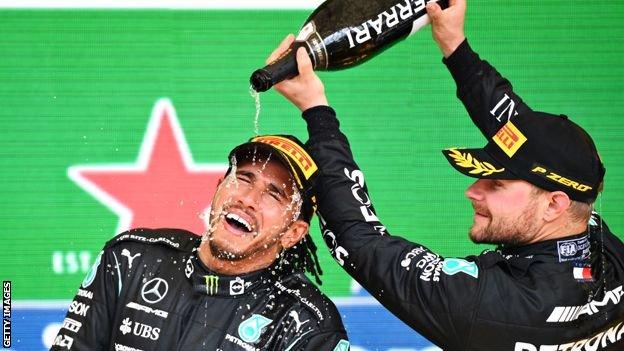
This is the ultimate modern sports documentary in terms of behind-the-scenes access. Over three series, we get to follow three championship seasons, with cameras in the cockpit and on the pit wall during races, as well as interviews with drivers and teams beyond race day.
The whole thing takes us into the self-contained melting pot of drama and intrigue that is the F1 circus, with plenty of politics, back-stabbing and frankly foul language. Each episode drills down on the inner workings of a team or relationship between a driver and the sport.
In episode three of the latest series, we get an insight into what it’s like to be Hamilton’s team-mate, from the point of view of Mercedes’ Valtteri Bottas.
The short story is the Finnish driver absolutely hates having to play second fiddle.
“If your team-mate wins and you are second, you feel like you’ve lost,” Bottas says in one scene.
In another scene, at the 2020 Russian Grand Prix, there is a suggestion Bottas defies team orders to support Hamilton and instead gives a tow to Max Verstappen in order to take his own preferred place on the grid.
“Whether I did it on purpose, only I know,” Bottas says, with a telling smile.
3. Senna
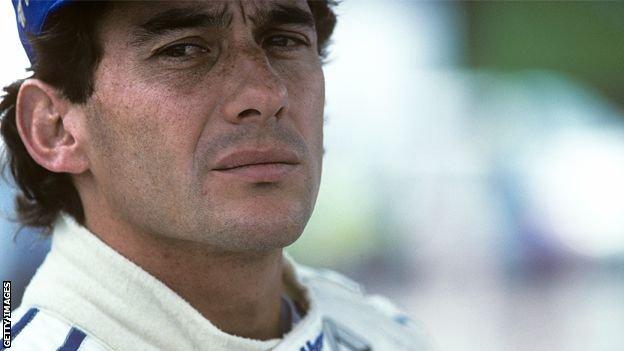
This has to be up there with the all-time great sports documentaries. Made by Asif Kapadia – who also directed Amy, Diego Maradona and Oasis biopic Supersonic – the film brilliantly uses archive footage to take us into the world of legendary Brazilian driver Ayrton Senna.
It’s a world of late ’80s mullets, Brasilica, 808 drum machines and fast cars. Grainy footage captured on home cameras shows us the man at home – a very pensive and religious figure.
One of the through-lines is Senna’s bitter rivalry with French driver Alain Prost, as well as the then head of the sport, Jean-Marie Balestre. The film takes us inside major battles between Senna and Prost, including controversial clashes which swung the championship title for Prost in 1989 and then Senna in 1990.
Everything builds towards the climax of the 1994 San Marino Grand Prix, where Senna was fatally injured in a crash. There’s a horrible sense of creeping danger as Senna worries about safety conditions and other drivers are involved in crashes, including Austrian Roland Ratzenberger, who was killed the day before Senna’s accident.
4. A Life of Speed: The Juan Manuel Fangio Story
This is a lovely deep dive into man who many consider to be the greatest driver of all time.
Argentinian Juan Manuel Fangio was the standout star of the first decade of Formula 1 racing, winning the championship five times between 1951 and 1957. What was particularly remarkable was that he managed to do it consistently across four different cars and teams.
Within the film, Dr Andrew Bell of Sheffield Methods Institute crunches the numbers and compares different drivers from different eras by looking at F1 championship victories, fastest laps and race victories. He concludes that Fangio is the greatest of all time.
We learn about a man who had a thorough knowledge of mechanics and who had to drive some very unwieldy cars on some very unforgiving dirt roads. Two-time F1 champion Hakkinen describes having a go in one of these vehicles and struggling.
There’s a great scene from the 1957 German Grand Prix. Fangio had given himself a 30-second lead at the front, but was then held back by an incredibly long pit-stop, which meant he rejoined 50 seconds behind with 10 laps remaining. He managed to make up the deficit and win.
5. Lauda: The Untold Story
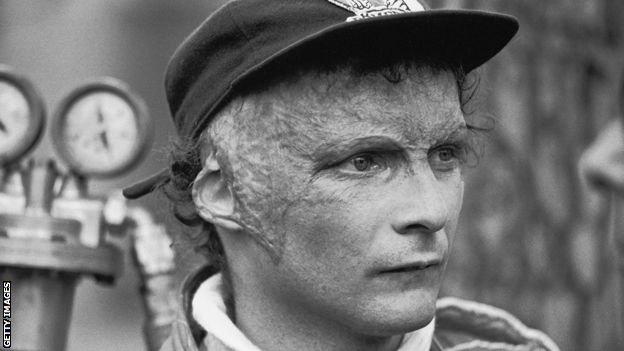
This film deals with a lot. In part, it’s a telling of Niki Lauda’s near-fatal crash at the Nurburgring in 1976, when his car set on fire and he suffered extensive burns, as well as inhaling toxic fumes from the melting vehicle that could have killed him.
It’s also about his incredible recovery (Lauda finished fourth at the Italian Grand Prix just 33 days after being released from hospital). From interviews with doctors, his wife, other drivers and Lauda himself, we get a sense of someone with incredible mental fortitude.
“I saw the crash as an occupational hazard… not a reason to stop,” he says in one scene.
Beyond the personal story though, the film also delves deep into some of the broader safety concerns that affected drivers at the time. We learn there have been over 100 deaths at the Nurburgring since 1927 and that, as president of the GPDA at the time, Lauda was against the idea of drivers racing on the circuit.
We also learn about safety developments, including the use of carbon fibre to remove risks of cars setting on fire. This is the stuff for real racing nerds.
A key scene is early on in the film when Lauda describes being furious that a priest had given him last rites in hospital, because he felt he had been written off.


